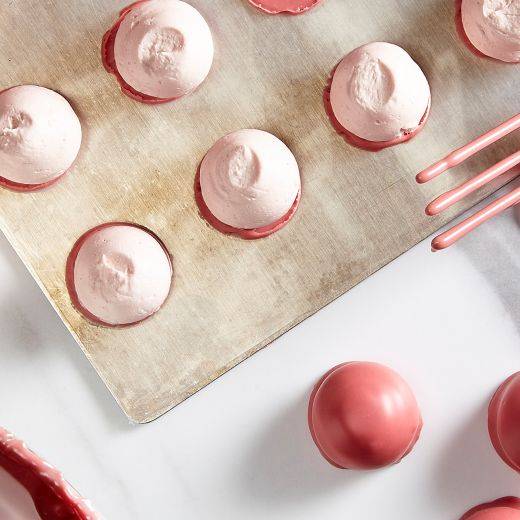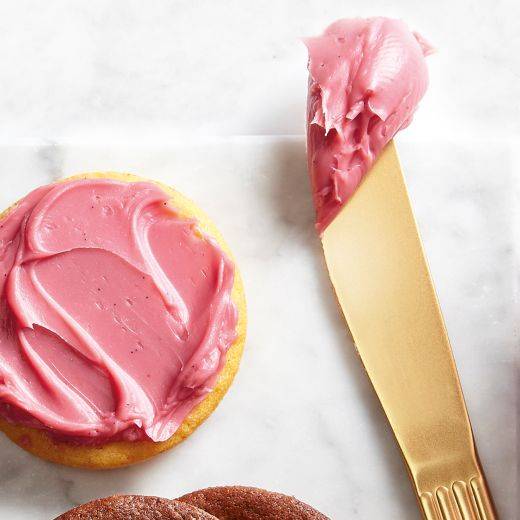in Bakery & Patisserie
Ruby RB1 is at its best when used as pure as possible
100% pure – e.g. in pastry decorations
The taste and colour of ruby RB1 really stand out when you use it as pure as possible – only mixing it with dried or crunchy inclusions for instance.
We recommend using ruby RB1 in a pure form as much as you can. Simply to allow your customers to fully explore and enjoy the taste and colour in the purest possible way.

DECORATION
Ruby RB1 is perfect for creating tasty decorations – even when mixed or dusted with sprinkles, crunches, spices or dried fruit and vegetable powders such as beetroot, raspberry, cherry, etc…
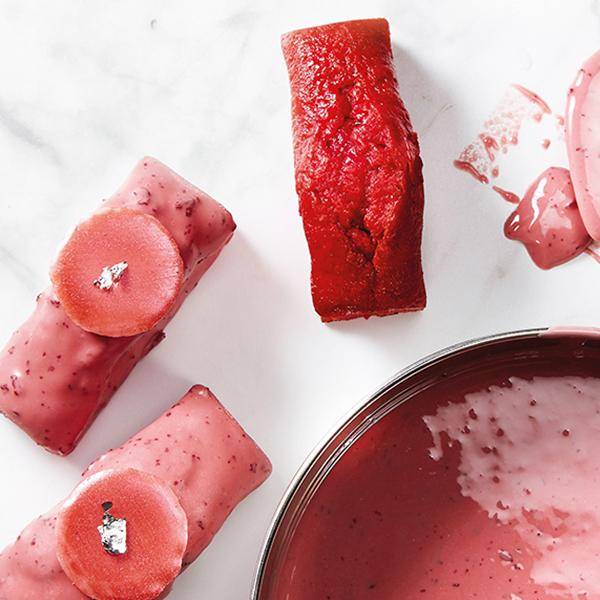
DIPPING/ENROBING BAKERY PRODUCTS
Dipping baked cakes and viennoiserie in pure ruby – or mixed with crunches, spices or sprinkles – yields sparkling end results
Always respect the storage and processing recommendations to prevent your finished ruby products to change colour and taste.
We recommend to always run a shelf life test of the final product prior to commercialisation.
Watch the video
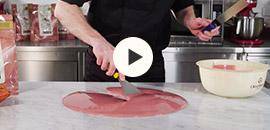
HOW TO TEMPER RUBY RB1?
For ruby pastry creams with maximum taste and colour: mix ruby RB1 with fat-based ingredients

When creating a tasty and perfectly stable pastry cream with ruby RB1, we recommend to mix ruby RB1 with fat-based ingredients, such as butter. It makes all ruby flavours stand out and prevents any dilution of taste or colour changes.
Watch the video
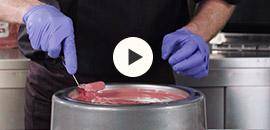
HOW TO MAKE A BUTTER CREAM FILLING WITH RUBY RB1?
Some inspiring recipes
How to create ruby RB1 pastry creams, glazes, mousses and crémeux with water-based ingredients?
In numerous patisserie recipes – such as chocolate creams, crémeux, glazes, etc. – chocolate is often mixed with wet ingredients or liquids to obtain a perfect taste and texture.
Watch out
When mixing ruby RB1 with liquid ingredients such as cream or milk, you may experience its natural colour to fade or turn grey. This is normal: diluting ruby RB1 changes the pH and causes the colour change. Restoring the pH however can help you tune the colour precisely to the typical ruby colour.
How to remedy?
Add acidity from fruits (e.g. fruit purees, lime juice, etc.) to restore the original pH
The original ruby colour will return when achieving pH 3.3 – 3.8
AND/OR
Add colour through natural ingredients: e.g. from dried flower petals (rose, hibiscus) or dried beetroot, raspberries…
On top: you create interesting pairings, bringing out great flavour experiences.


